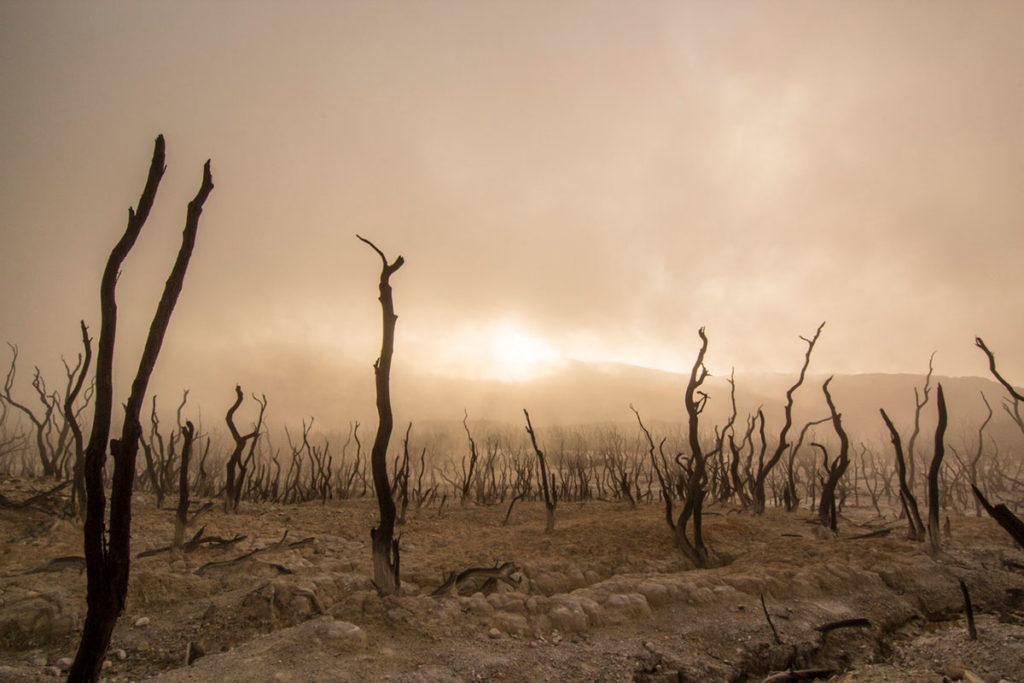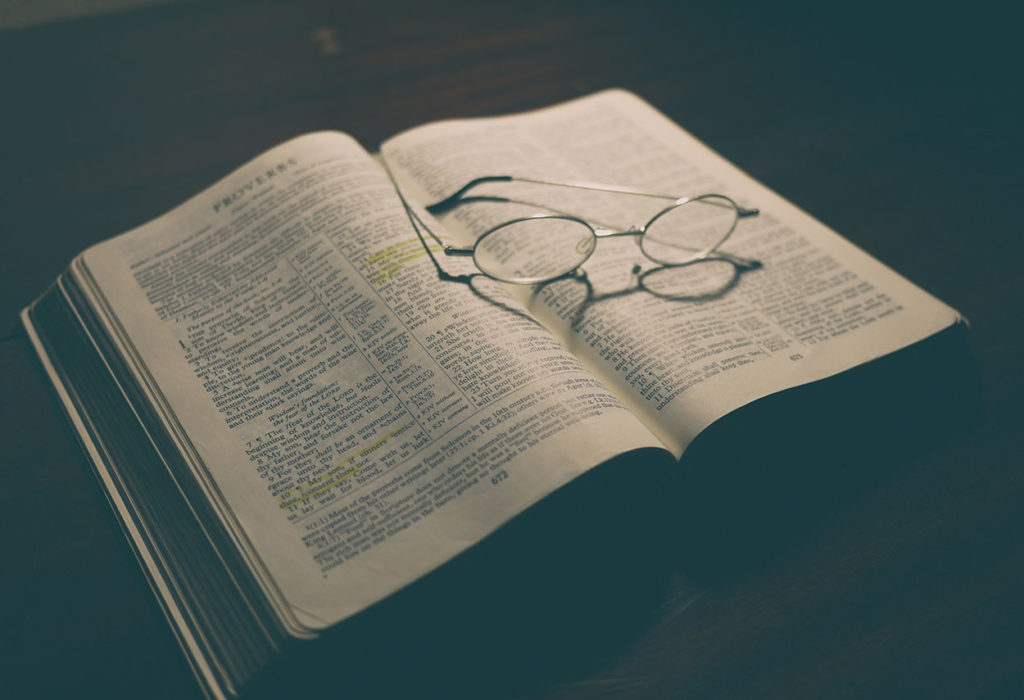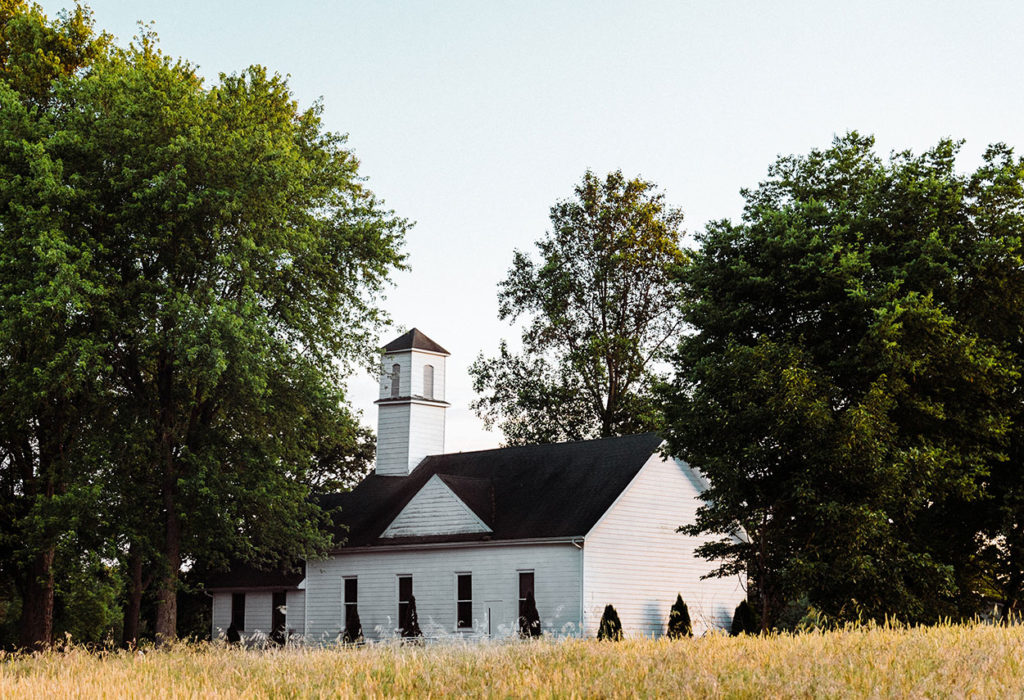It sounds paradoxical. But I think that awareness of our finitude is our hope.
So much of our Christian tradition has emphasized life after death and that our destiny and ultimate destination is in heaven with “God.” Somewhere, up there. And Jesus is the necessary and only one who can assure us of such a “homecoming.” Believing in Jesus is our blessed assurance, our assurance of everlasting life and our destiny with God. Which is not here.
Even today I hear people long for the next life. And that it is the next life that is helping them endure this one.
Focus on the Here and Now
But our ideas about the next life or heaven are fantasy. To keep our eyes on that prize to the neglect of our life here is sad and mistaken. The urgent task in this 21st century for those of us who consider ourselves “spiritual” or “religious” is to re-imagine God and re-imagine religion and how then we shall live. Such an undertaking requires imagination over fantasy. I highly recommend a wonderful and important book by Jerry Wright of that name: Re-imaging God and Religion.
It has long been said that to realize our finitude, our limit, our mortality is to “awaken.” We awaken to the awe and wonder that is around us. And in us. We awaken to the awe and wonder that we exist at all. Death is the great teacher, the wisdom traditions tell us. Death’s victory is teaching us how to live. Whatever else may happen when this body is destroyed, this life is the only life we can know. I give a nod to realms of consciousness that seem to defy the limits of time and even space. And to mechanical and quantum physics that seem to defy the same. But I still insist that this is the only life we can know. And its discoveries are endless. To wait out this life for heaven, or detach from this life to avoid suffering, or to think our task is to get off this wheel and not return, or to assume that Jesus is going to “clean up the mess” as Dom Crossan put it, is to fail humanity. Now and for the future.
As Michael Morwood puts it, we are the human expression of 4.5 billion years of evolution on this planet. The human expression of what he calls “The Great Mystery.” Human life is wondrous and terrifying. It is liberated by love and wounded by it. It is broken by illness and accident, hatreds and happenstance and our own doing. It is experience of remarkable beauty and wonder and grace and joy. The synchronicities and serendipities that meet us make us wonder if we are observed, located. Surely we are part of a numinous, luminous web. Whatever may come beyond our knowing here and now, I think we must live “this one wild and precious life” as Mary Oliver puts it, as though this is it. And make every effort to provide for those who will follow so they too can evolve and enjoy and ponder the human experience.
Love What is Lovely and Will Not Last
To quote Mary Oliver again, our task is to “love what is lovely and will not last. What a task to ask of anything or anyone, yet it is ours, and not by the century or the year, but by the hour.” Or there will be no year or century. She describes seeing snow geese. “The geese flew on, I have never seen them again. Maybe I will someday, somewhere. Maybe I won’t. It doesn’t matter. What matters is that, when I saw them, I saw them as through a veil, secretly, joyfully, clearly.” When I saw them I saw them. Her experience quickens our desire to see as well. It stirs our great human impulse to love what is lovely and will not last. We love for love’s sake. We love for our sake, for others’ sake, and for a human future. Our finitude then is our hope. Fantasy future is not going to happen. No matter what we believe.
I remember when James Watt, the Secretary of the Interior (1981-1983), considered an “anti-environmentalist,” said: “My responsibility is to follow the Scriptures which call upon us to occupy the land until Jesus returns. We don’t have to protect the environment, the Second Coming is at hand.” Not all climate change skeptics today may reference the Second Coming but their claims are just as dangerous. As though we don’t need to worry about the cost of an “abundant life.” What is assumed is a limitless capacity. And we are the definers of that capacity. Our ecological imbalance may right itself. But it may not include us. Or any number of other species. No, Jesus is not going to return to clean up the mess.
Taking Responsibility for Your Actions
Robert Oppenheimer, theoretical physicist, (1904-1967) responsible for the research and design of the atomic bomb, shuddered with his “success.” “Now I am become Death, the destroyer of worlds,” he said, a line from the Bhagavad-Gita from the Hindu tradition to which Oppenheimer was attracted. The Hindu story claims that the soul is eternal, everything is in the hands of the divine, Death is an illusion. One must do their “holy duty,” as a warrior, to be liberated from the cycle of life and death. And there will come a “world-destroying time.” But Oppenheimer in the aftermath of the devastation of the atomic bomb did not find solace in the idea of the immortality of the soul. It did not convince. Nor relieve him. The quote he is so famous for recalling instead of describing release for an immortal soul rather described the horrific consequence of his “duty” for this world.
Our Legacy: A Future
I return to the paradox. When we face our finitude that is our hope. If we come to love this life, for all its fears and tremblings, if we find that the privilege and wonder of existence is a remarkable thing unto itself, if we treasure and cherish that we can reflect upon and enhance (or destroy) what we do here, then everything we do takes on critical importance. If we are lovers of ourselves and humanity and all things animate or inanimate on this fragile earth, if we care for it, learn from it, see its play of balance and creativity as reflective of our own, then we will want to assure that this opportunity continues for others to come. That will be our honor. That will be our joy. That will be our legacy: a future. A future for others. So they too can love with abandon what is lovely and will not last. Paradoxically, our finitude is our hope.
What do you make of this argument? Help me think this through. And comment on my concern that the conventional narrative about heaven and an afterlife in the Christian tradition needs to be re-imagined and re-articulated. Because our life depends on it.




Marianne,
I am new here. Do you not believe in a life after our earthly death?
THank you
Gen
Gen. I responded to you via email. But let me say here. Life after our earthly death. I am becoming more convinced that whatever happens to our molecules and “dust” after we die somehow reengages in all that is. We become part of the swirl of that which continues. That might sound too impersonal. But I am becoming increasingly fascinated and in awe of the wonders of the universe, the windows provided by quantum mechanics and the wonderful discovery (!) that an observed particle behaves differently than an unobserved particle! That will preach! Still sound too impersonal and abstract? maybe.
But whatever God is it comprehends all this and more. I feel increasingly privileged to be part of this. And, along with my beloved husband, I have a deep trust….I exist. I entrust my own death to the same wonder that has brought me into life. It has taken me a long time to get here….I am less afraid. More grateful. Even after suffering immeasurable losses. As we all do. Life after death? Yes. And I don’t know what it is. Thank you for not being shy about chiming in. Keep doing so.
My husband died three years ago of complications from dementia, after 17 years of slow decline. When people tell me “He’s in a better place” or try to reassure me that I’ll see him again in the “next life,” I respond, “I don’t know. I can’t pretend to know; I’m only human.” But what I do know is that he was beautiful, that he thought life was beautiful, that our beautiful love endured, and that love can, indeed, cast out fear. It was not always easy. But it was rich and enriching. That’s all I need to know.
Anne-Marie. Forgive my delay. I thought I had responded… but it did not show here. We cannot know…..we do know we are part of a mystery of creation, of evolution, of beauty and reflection and living and dying….I am so moved by the power of your saying your husband was beautiful and that your beautiful love endures. I have known that as well. Strangely that is more real to me than death. And has been part of what sustains me in life here and now. Thank you. What we know,first hand, and have experienced will suffice. And more.
Marianne,
Thank you for your review of the conference and your remarks. And thank you for the book recommendations. Two other sources on the same theme I have found helpful: Gordon D. Kaufman, “In the Beginning. . . Creativity”, and Sallie McFague, “Models of God”. It is definitely a time for re-imagining. And, of course it is not new. The Jews and Christians have always been about reinterpreting their traditions to meet the periods in which they live. We see it in Jesus teaching, “Moses said this, but I say this.” I like what James Fowler says about stage 5 in “Stages of Faith”: “Conjunctive Faith is he point when people begin to realize the limits of logic and start to accept the parables of life. They begin to see life as a mystery and often return to sacred stories and symbols but this time without being stuck in a theological box.”
Thank you,
Gene
Gene. Thanks for this reflection. And recommendations. It is time I return to Sallie McFague. Her images, metaphors for God are so helpful. And continue to be. And I have just read Gordon Kaufman’s In the Beginning, creativity. I loved it. Part of what I appreciated about that book, he acknowledges the graces, synchronicities, coincidences, what he calls “serendipitous creativity.” A combination of our perception and what we experience. I really like his idea of “God” as creativity….and art as metaphor…no right or wrong…..I do not do him justice here. I love your sense that at some point we come to seeing life as parable and even paradox. And the new found pleasure and freedom in kissing the joy as it flies. I appreciate Fowler’s “Conjunctive faith.” Wouldn’t we all like to think we are in stage five! Ha! Continue the conversation with us. Thanks again, Gene. Good to hear from you.
Marianne, thank you for this post. I have been struggling with this concept for some time, asking myself, “Who is God; what is God.” As much as I love the Bible, and I do love it, I love to read it, study it, and follow what is good in it, I believe the Bible itself tries to explain God in terms it’s original hearers could understand, but it cannot be allowed to limit our understanding of who and what God is. We are certainly indebted to those ancients on whose shoulders stand, but we cannot restrict ourselves to the limited strength of those shoulders. I will continue to think on these things and hope someday I am able to share my reasoning with others. Again, thank you.
Hershel. Thank you so much for this. I appreciate what you say and how you say it. I agree, the. Bible is a human product, reflecting the human attempt to address wonder, fraughtness, beauty, life, death, betrayal, our humanity! and our deep need for meaning or some kind of narrative to express what we know and don’t. We have a more thrilling worldview than the ancients. They had an understanding of story and narrative. So now we try to weave our current understanding about what is…with the help of science, mechanical physics, imagination. How do we story this? The task to tell the story honestly and with intellectual integrity but not definitively! How can we? And in a way that to use Jerry Wright’s words, is “soul satisfying. “ As you can tell, I am pondering all this. And need others to help me think and point me to resources. Continue to share your reasoning! With me and others. Thanks so much Hersh.
Thanks you for the summary of the seminar. I receive and read Richard Rohr’s daily meditations from the Centre for Action and Contemplation and I find his focus on non-dualism ties in wonderfully with Michael Morwood’s saying that we are all made of stardust. We are truly in an exciting time of theological revolution.
Susan. I am glad the summary of Michael Morwood’s presentation was helpful. I agree with Michael and others, this is a crucial and pivotal time in our religious, spiritual and human history….as Michael says, changing “faster than ever.” We have an opportunity to shift and influence things. But we must make haste. Here’s to stardust….and remembering we are a privileged part of this. Concerning dualism. When dualism suggests there is a divide between what we call sacred and profane it allows for “splitting” which ultimately cannot transform. When we project our goodness or not so goodness out there it becomes disembodied. We need to take responsibility for our human actions and hope we can better partner with the world that contains us. Do not give up! Thanks for your comments.
It pleases many people to imagine that reality can be measured in pounds and light-years.
But in truth, what is most real is ‘The Mind’s I’ (as in Hofstadter’s title) — which is likewise the Heart’s Eye, the Imagination’s Seer… which is embodied in physicality only incidentally. (How much physicality? More of it than we can know, but does it matter?– that we know more or less of that in one century than in another?)
The Realizer is the timeless background of unfolding Creation, not thought nor thing nor any emotion felt by us. We live because God lives us… while the world that enfolds us and moves us from one event to the next is itself an ongoing work of Art transcending whatever we think of as ‘myself.’
Forrest. Always appreciate hearing from you, from your Mind’s I, Heart, Seeing imagination. I agree that we are part of, an expression of, this vast unfolding. Perhaps embodied in physicality only incidentally. But not to be dismissed. You are philosopher artist. In Art there is no right or wrong. And as with Language we push against it’s limits knowing it can never comprehend the inexpressible but just might point to it. Gordon Kaufman calls “God” serendipitous creativity. What do you think?